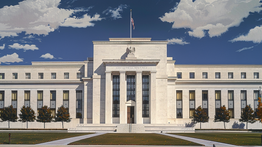

Ron Paul, known for his non-interventionist foreign policy views, critically examines the U.S.'s role in Ukraine, questioning the motives and benefits of its actions.
In a sobering analysis of the prolonged conflict in Ukraine, a recent interview by Tucker Carlson captures the prescient warnings of former Congressman Ron Paul, who, back in 2014, foreshadowed the negative ramifications the West's involvement in Ukraine would have, not only on the nation itself but also on the United States and Western allies. The interview underscores the complexity of the situation, framing it as not merely an endeavor to promote democracy, but rather a convoluted intelligence operation with unclear motives, possibly aimed at drawing the US into a war with Russia.
Ron Paul, a longtime advocate of non-interventionist foreign policy, criticized the U.S. government's expenditure of $5 billion over a decade to manipulate Ukraine's leadership, including a hand in the ousting of Viktor Yanukovych. He questioned the benefits of such involvement, drawing parallels with the disastrous outcomes seen in Middle Eastern conflicts like Iraq and Afghanistan, and highlighted the futility of imposing sanctions on Russia, given the considerable mutual economic investments between Russia and the West.
The interview sheds light on the lack of public attention to the events unfolding in Ukraine years ago, suggesting that this oversight allowed the U.S. to be unwittingly dragged into a pivotal conflict to its detriment. It poses the question of how Ron Paul managed to foresee these events when others, including the host of the interview, Tucker Carlson, did not.
Paul attributes his foresight to principles he has held steadfast for over 60 years, a relentless curiosity about the forces at play behind political maneuvers, and a firm belief in non-intervention. He emphasizes the importance of ideology and the power of ideas over political machinations, referencing the influence of thinkers like Leonard Read and the Mises Institute in shaping his own views. The discussion also delves into the concept of the "remnant" – a core group united by ideology that persists through adversity.
The interview concludes with Paul expressing optimism that the ideas of liberty and non-aggression will ultimately prevail, despite the current political and economic turmoil. He maintains that individuals who are informed bear the moral responsibility to disseminate these ideas and inspire change.